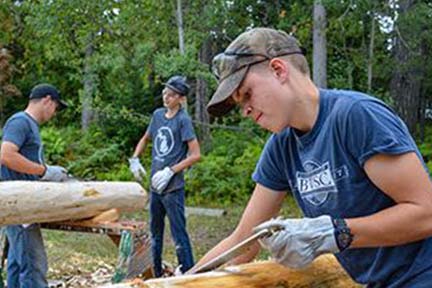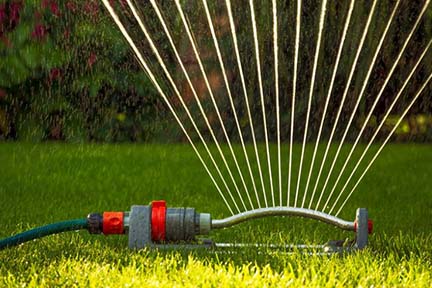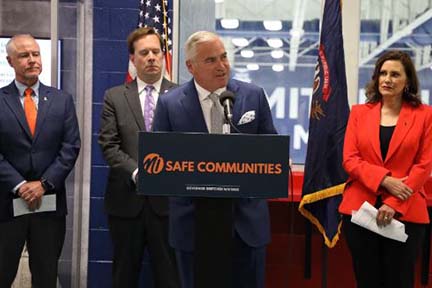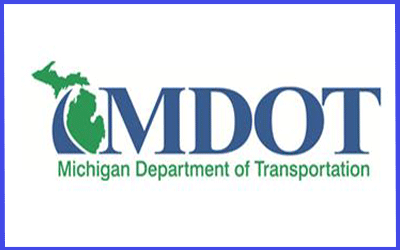
Statewide Initiative to Increase Affordable Connectivity

FOR IMMEDIATE RELEASE
June 8, 2023 Contact: [email protected] Governor Whitmer Launches Statewide Initiative to Increase $14.2B Affordable Connectivity Program Adoption Community Partners Encouraged to Sign up to Increase Awareness of Federal Program Providing $30 per Month Toward High-Speed Home Internet
LANSING, Mich. — Today, Governor Gretchen Whitmer and the Michigan High Speed Internet Office announced the kick-off a statewide Michigan ACP Act Now initiative to increase awareness of the Affordable Connectivity Program (ACP), a $14.2 billion federal broadband benefit funded by the Infrastructure Investment and Jobs Act, that will connect more Michiganders to the long-term benefit that helps lower-income families pay for high-speed internet.
The ACP provides eligible households with a monthly discount of up to $30 per month (up to $75 per month for households on tribal) and a one-time $100 discount toward a laptop, desktop computer or tablet. Nearly 1.7 million Michigan households are eligible for the ACP, yet only 644,000 have enrolled.
“With affordable high-speed internet available to all Michiganders, we can grow our economy, create jobs and improve healthcare and education outcomes,” said Governor Whitmer. “These critical investments will connect homes and small businesses across Michigan, and we are committed to achieving our ambitious goal to connect every Michigan community.”
The Michigan ACP Act Now initiative will unite a broad coalition of partner cities, community-based organizations and trusted institutions in partnership with EducationSuperHighway, the national non-profit with a mission to close the broadband affordability gap. Organizations are encouraged to sign up to help spread awareness to Michigan residents.
“MIHI is excited to spearhead the Michigan ACP Act Now initiative to lessen the burden eligible Michiganders face when trying to afford high-speed internet for themselves and their families, said Eric Frederick, chief connectivity officer of the Michigan High-Speed Internet Office. “We are committed to bringing affordable high-speed internet to all Michiganders, and we are grateful for EducationSuperHighway and other partnerships that increase affordable connectivity awareness and adoption.”
Through the ACP Act Now Initiative, EducationSuperHighway will support statewide awareness efforts by training community leaders and partner organizations and providing outreach materials and tools to help households enroll. The non-profit recently launched GetACP.org/Michigan, a virtual mobile assistant that simplifies the ACP enrollment process by providing real-time support to help eligible households determine the easiest way to qualify. The mobile website is available in four languages and helps applicants overcome critical barriers in the enrollment process by helping them identify the documents needed when applying and find “free with ACP” broadband plans available at their address.
ACP-eligible households include families with incomes at or below 200% of the federal poverty level and those who qualify for Lifeline, SNAP, Free and Reduced-Price School Lunch, WIC and other government-funded programs. The new initiative will leverage state channels to directly promote the ACP to households in these programs and unite local governments, community-based organizations and trusted institutions to reach unconnected households.
“Whether it’s fixing the damn roads or partnering with organizations like EducationSuperHighway, I appreciate Governor Whitmer’s continued commitment to improving all of our state’s infrastructure to help us better connect with each other,” said state Sen. Sue Shink (D-Northfield Twp.). “Whether it’s for school or work, applying for jobs or paying bills, or just connecting with family and friends, internet access is an important part of all of our daily lives, and we need to do more to make sure all residents can get online, regardless of their income. The Affordable Connectivity Program does just that, and this initiative will help make sure all eligible residents know about—and capitalize on—this valuable resource.”
“Internet affordability has been a real problem for residents in Battle Creek and Albion. That’s why I’ve been a longtime proponent of making high-speed internet service more affordable and accessible, so I commend the governor’s initiative to get the Affordable Connectivity Program on more people’s radar,” said state Rep. Jim Haadsma (D-Battle Creek). “This program is set up to help individuals and families struggling financially to be able to afford high-speed internet and electronic devices. Closing the digital divide is a crucial step toward lessening socioeconomic inequalities — this program helps move Michigan in that direction.”
“Michigan is again leading the way in closing the digital divide by ensuring eligible households know about the Affordable Connectivity Program, can easily enroll and then sign up for high-speed internet service,” said Evan Marwell, CEO of EducationSuperHighway. “We applaud Governor Whitmer’s bold leadership in removing the barriers that keep so many unconnected.”
Organizations wanting to get involved in this initiative can attend a webinar on June 26 at 1:00 p.m. EST to learn more. Registration for the webinar can be found here.
|




 Several state parks in southern Michigan will host volunteer stewardship workdays in June. Volunteers are needed to help with removing invasive plants that threaten high-quality ecosystems or collecting native seeds for prairie restoration.
Several state parks in southern Michigan will host volunteer stewardship workdays in June. Volunteers are needed to help with removing invasive plants that threaten high-quality ecosystems or collecting native seeds for prairie restoration.
 Help improve wildlife habitat and hunting access with
Help improve wildlife habitat and hunting access with  The DNR is hosting virtual public meetings to provide information on the state land review process and opportunities for feedback on recommendations on whether to keep, exchange or sell DNR-managed public land in 11 counties: Baraga, Benzie, Clare, Clinton, Genesee, Ionia, Manistee, Mecosta, Newaygo, Shiawassee and Wayne.
The DNR is hosting virtual public meetings to provide information on the state land review process and opportunities for feedback on recommendations on whether to keep, exchange or sell DNR-managed public land in 11 counties: Baraga, Benzie, Clare, Clinton, Genesee, Ionia, Manistee, Mecosta, Newaygo, Shiawassee and Wayne.










